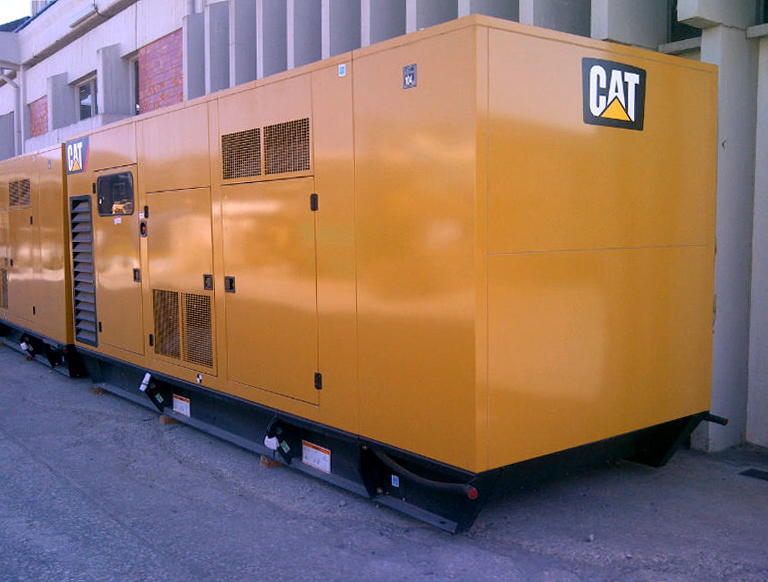Talk to any experts and they’ll tell you that in the future, we can expect longer and more severe blackouts to hit, all across the country.
If you haven’t invested in a commercial generator to help power your business in case the worst hits, you need to today. If your company relies on any kind of data, connectivity or perishables, whether working in eCommerce or hospitality, your customers need to know there’s nothing to worry about.
Put your mind at ease by considering these five factors when buying a generator.
1. What Kind of Power Do You Need?
One of the most important considerations for your backup generator needs to be what kind of power it can handle. If you’re going to make use of a backup generator, it has to be able to power your equipment when the grid goes down. There’s little use for a generator that’s too weak to power your operation.
In the event of a power outage, do you need to run the entire building or just a few emergency loads? Consider peak usage when deciding how big your generator has to be. If you can’t afford to keep the whole company running, you might need some help from an electrician.
An electrician can split your emergency circuit for when the power goes out. This can keep essential items in operation and keep the rest from draining on your generator.
These are critical considerations for healthcare facilities where life support and necessary systems mean life or death. It’s even critical for food operations where refrigeration system outages can bring down an entire quarter of profits.
Be sure to also consider what local or federal codes might require from you.
2. What Kind of Fuel?
The type of fuel that you choose will make a difference in cost and how effective your backup generator is. Most emergency standby systems are powered by natural gas, diesel, or propane. Some people think gasoline is the most convenient but it’s actually a bad choice.
That’s because gasoline burns quickly and has a short life of stability. After a relatively short time, your gasoline won’t burn well or could even require your system to be drained before use.
Consider costs as well. Diesel or natural gas-powered generators vary in price depending on their size. Price will also play a factor in regard to how available that fuel source is to you and your company.
Diesel or propane could require a refill during a long power outage, which could be challenging. Inside some city limits, propane isn’t an option. Be sure you know the laws before you make a choice.
3. Think About Installation
Installing a generator isn’t as simple as buying it and plugging it into your system. At the very least, it will require a licensed electrician. They can help to wire your generator to kick in when power fails and can split your circuit to keep critical systems up, as stated above.
You may also need a plumber to help keep your water systems running. If you have any of your water systems hooked up to an electrical system, you’ll need both a plumber and electrician.
Consider talking to your neighbors or other companies in your industry when looking for a referral. Getting some advice from someone who’s set one up for a facility similar to yours is always helpful.
4. Indoor or Outdoors
Generators will need to be stored somewhere that’s accessible for maintenance. Accessibility is key but since you won’t need it very often, most companies keep it in a relatively inconvenient location.
Your generator also needs to be out of the way of water damage. Rising water from flooding or an extreme storm will render your generator useless. Outdoor or rooftop installations are a good idea but require their own unique considerations.
You need to keep your outdoor generator away from combustible walls. Indoor generators will need to have a safely secured fuel supply, ventilation, exhaust, and space from combustible materials.
If you’re storing it outdoors, you need to think carefully about what type of enclosure you’ll need. Things to consider are not only the regional weather, but also possible noise ordinances in effect.
You may need to have an industrial-grade enclosure to protect yourself and your neighbors. Learn the laws before investing.
5. Get a Warranty
When you get a generator, the standard warranty is from two to five years. Look into this before you buy one. It may be years before you need your backup generator to kick in and get you through a tough time.
Some companies offer upgrades for longer warranty times for a small fee. If you can get it insured or protected for longer, consider doing that.
Ask what the warranty covers and see if you can upgrade any of the costs. A generator is a massive investment in protecting your business and it may sit around for years before you need it. However, you need to know that it’s ready to perform the day that things go south and you need it to kick on.
A warranty should be one of the many things on your list of demands for a high-quality generator.
Every Company Needs a Different Commercial Generator
No two companies are the same when it comes to their commercial generator requirements. The needs of one company versus another have to do not only with the industry they’re in but how much they plan to grow.
For more about natural gas and generators, check out this press release.









